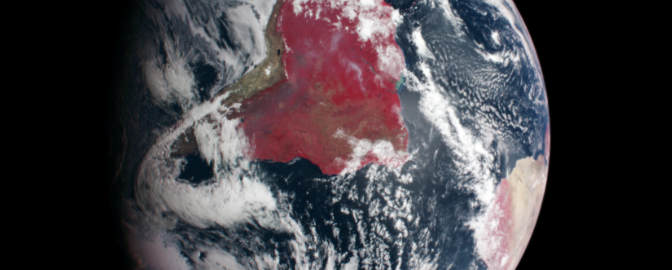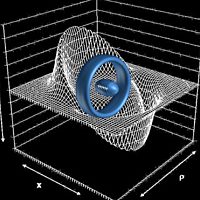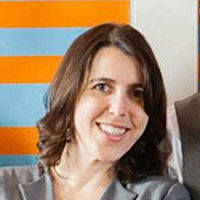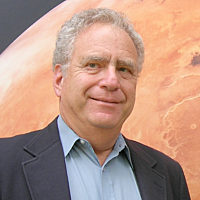Since 2002, Planetary Radio has visited with a scientist, engineer, project manager, advocate, or writer who provides a unique perspective on the quest for knowledge about our Solar System and beyond. The full show archive is available for free.
Search Planetary Radio
Planetary Radio continues its coverage from the 2025 NASA Innovative Advanced Concepts Symposium in Philadelphia, highlighting technologies that could shape future missions, from detecting exoplanet magnetospheres to exploring Venus and Saturn’s moon Enceladus with innovative robots.
Planetary Radio explores visionary ideas from NASA’s Innovative Advanced Concepts Symposium. In this first of two episodes, discover how researchers are turning science fiction into reality, from glass habitats on the Moon to starshades that could reveal new Earths.
Join us for part one of our journey to the 2024 NASA Innovative Advanced Concepts (NIAC) Symposium. We'll hear from the teams behind two of this year's NIAC projects that could help us study distant planets and potentially reach them ourselves.
Jet Propulsion Laboratory Director Laurie Leshin wants to give every brain in the country the opportunity to work in space exploration.
Join us at the 2022 NASA Innovative Advanced Concepts (NIAC) Symposium for a taste of projects that just might change the world.
Space historian Dr. Roger Launius joins the show to explain why Apollo happened the way it did, how a moonshot briefly became a solution to a national security problem, and why it is unlikely to happen again.
The day is almost here. With the launch of a Falcon Heavy rocket, The Planetary Society will begin its mission to prove that a tiny, orbiting spacecraft can be propelled by the light of the Sun.
A rare alignment of planets and other objects will enable the solar-powered Lucy spacecraft to examine seven asteroids, six of which are among the thousands of Trojan asteroids that orbit ahead of and behind Jupiter. The mission team, include Hal Levison, Cathy Olkin and Mike Sekerak, hope to unlock secrets of our solar system’s origin through these ancient artifacts.
The Beresheet lunar lander failed in the last few kilometers of its descent to the Moon. Two days later we learned that its team would try again.
Can NASA return astronauts to the Moon by 2024? Vice President Mike Pence shocked the space community by announcing this ambitious new goal just weeks after the Trump Administration proposed a half-billion dollar cut to the space agency.
The last few days have seen developments that will shape the space exploration plans of Canada and the USA. The Planetary Society’s Kate Howells is a member of Canada’s Space Advisory Board. She reviews the nation’s new space policy.
He led NASA for eight years, but not till he had flown on four Space Shuttle missions and enjoyed a long military career. Charlie Bolden talks with Mat about his time at the space agency and where we’re headed on the final frontier.
A mostly SpaceX episode as the ambitious company provides updated details regarding its huge new rocket and introduces its first astronauts. Mat Kaplan shares more from the company’s headquarters, while Planetary Society Digital Editor explains and explores the BFR.
There’s so much more to Freeman Dyson than the Dyson Sphere. The mathematician, physicist, futurist and author is one of the greatest and most original minds of our era.
The multi-award winning science fiction author, futurist and speaker returns to Planetary Radio for a wide-ranging conversation about robots and humans in space, empathetic artificial intelligences, how we can survive the Singularity and much more.
MESSENGER has been orbiting the innermost planet for more than three-and-half-years. Principal Investigator Sean Solomon returns with a status report as the mission enters its final phase.
Inspired by Star Trek, distinguished physicist Miguel Alcubierre developed the general relativity-based model for warp drive 20 years ago. Hear why he doubts it will ever be a reality, and learn about his current research on gravitational waves.
Alyssa Rhoden studies Jupiter’s moon Europa…from a distance. She, many other scientists and millions of space exploration fans around the globe want to see a mission to this ice world that hides a vast, warm ocean. That’s why she and several colleagues have created Destination: Europa, and they want your help.
“Starship Century—Toward the Grandest Horizon” is the new collection of fact and fiction assembled by Gregory and James Benford. The brothers are among the leaders of a renaissance in research and thinking about interstellar travel. They have returned to Planetary Radio to talk about this story of human destiny among the stars.
Only days after Voyager 1 reached interstellar space, forward thinkers met in Houston, Texas to consider how humans can become a starfaring species. Planetary Society Emeritus Executive Director Lou Friedman reports from the meeting.


 Explore Worlds
Explore Worlds Find Life
Find Life Defend Earth
Defend Earth





















